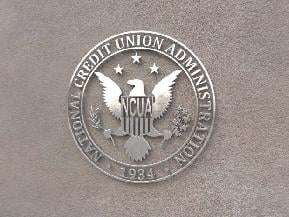<p>LA JOLLA, Calif. – A just-released survey from Harte-Hanks, CRM Status Report 2002, adds to the mystery of Customer Relationship Management. (see charts below) CRM or MRM as it’s sometimes referred to in CU land (though the term CRM is used more than MRM among CUs), is one of the more mysterious, hard-to-gauge operations credit unions engage in. “The future of CRM investment is dependent on how successful companies document and measure returns today. To justify the expense of CRM projects, even in phases, a variety of metrics will be important to ensure continuation of CRM programs, engage users and determine overall success,” said Gary Skidmore, president of Harte-Hanks. That may be a widely-held belief, but according to the survey, CRM users aren’t measuring the financial return of CRM. The survey indicates that 44% of users don’t have return on investment measures in place. That’s up from 32% last year. However, 52% did report that they use at least one type of customer-based ROI-type metric, whether it be customer service ratings, customer retention or some other like metric. Free-flowing data from disparate solutions and systems, and tools to analyze that data and make product recommendations to members is heralded as the key to CRM. The survey backed this up. Some 42% surveyed said integrating different data sources into a single data system is one of the biggest challenges with CRM. This has caused credit unions to be more reliant on good technology, rather than good marketing to pull CRM off. The survey showed that IT departments have more control over CRM dollars than marketing departments. This is troubling, according to a Harte-Hanks report on the study, because sales and marketing departments are the primary users of CRM solutions, yet they are playing only a small role in development priorities. “If the power users aren’t directing development, many implications run the risk of not meeting (goals) and…suffering from a lack of relevance and ultimately use,” the report stated. Interestingly, the expense of CRM must be catching the eye of senior management. While in last year’s survey just 5% were driving CRM development and maintenance budgets, 28% reported doing so this year. While the study said, “Everything about CRM screams for the Internet,” a statement being heard more and more, the study shows CRM and the Web are not married yet. Only 17% of all CRM users said their CRM solutions provided Web access for more than 75% of their user base. Half of the solutions profiled had no Web access. The survey found that external sales forces are more restricted from using the CRM solution than inside sales reps. Just 64% of external sales professionals have access, while 86% of internal sales reps have access. About 76% of those surveyed reported that the marketing department had access to CRM. Third-party vendors still dominate CRM. Approximately 76% of respondents said their CRM solutions are from an outside vendor, while just 20% said they were built in-house. The survey results were based on interviews with 464 companies companies, of which 59% had 100 or more employees. Approximately 89% surveyed said they have a CRM solution in place; 6% were planning one within the next six months; and 5% were currently building one. Here’s the breakdown of respondents by industry: 34%, manufacturers; 29%, services; 15%, retailers; 10%, financial or insurance; 4%, transportation or utilities. [email protected]</p>
 Search
Search














 Copyright © 2025 ALM Global, LLC. All Rights Reserved.
Copyright © 2025 ALM Global, LLC. All Rights Reserved.